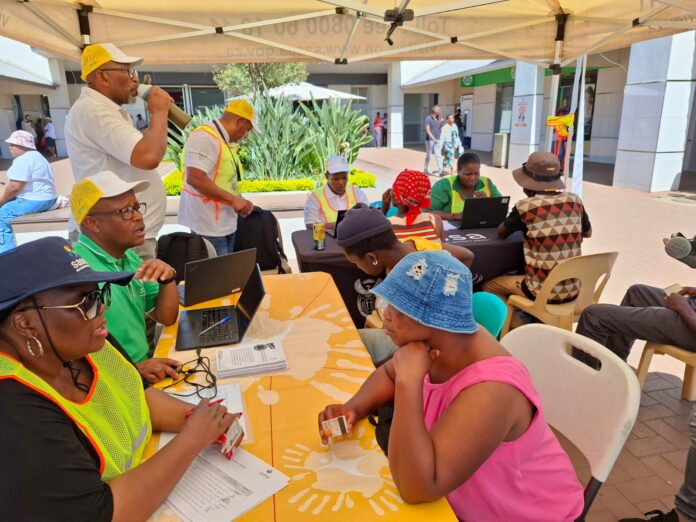In a landmark judgment, the Pretoria High Court has ordered the South African Social Security Agency (SASSA) to “progressively increase” the SASSA (Social Relief of Distress (SRD) grant and its income eligibility threshold in line with inflation and the rising cost of living.
This decision, part of broader issues raised about inefficiencies in South Africa’s social assistance system, is set to bring relief to millions of vulnerable South Africans who depend on the grant for survival.
Presiding over the case, Judge Leonard Twala ruled that the current regulations governing the R370-per-month SASSA SRD grant are unconstitutional and invalid. The court also mandated the exclusion of once-off payments and financial gifts from the income threshold calculation, addressing a significant barrier to grant eligibility.
Advocacy groups, Institute of Economic Justice (IEJ), #PayTheGrants campaign and Socio-Economic Rights Institute (SERI) have hailed the decision as a monumental victory in the fight for equitable social assistance policies.
“The judgment refuses to allow the National Treasury to justify indignities visited on the most vulnerable by claiming that the enjoyment of our rights is ‘unaffordable’,” Dr Gilad Isaacs, IEJ said, adding: “It is especially important given the persisting unemployment and hunger crisis in South Africa. The remedies granted will materially impact over half the population, both directly and indirectly.“
SASSA SRD grant and its controversies
The SRD grant was introduced in 2020 as a temporary measure to provide relief during the COVID-19 pandemic. Initially set at R350, it was increased to R370 in April 2024. However, the income threshold to qualify for the grant was reduced from R595 to R350 after the grant moved under the Department of Social Development (DSD) in 2022, leaving millions disqualified.
One of the key challenges highlighted during the case was the government’s reliance on online applications. Applicants without access to smartphones, computers, or internet connections were effectively excluded from applying. Judge Twala ruled that this system disproportionately disadvantaged the poor and was neither reasonable nor fair.
The judgment also revealed that millions of successful applicants failed to receive their grants due to administrative inefficiencies. Judge Twala criticised the government for offering no adequate defense for the delays, stating that the SRD grant is essential to alleviate hunger and poverty.
Fiscal and policy implications
During the case, Advocate Gilbert Marcus, representing the National Treasury, warned that increasing the SRD grant to match inflation could strain public finances and affect other social assistance programs. He argued that the grant was intended as a temporary relief measure and expanding it could undermine efforts to reduce poverty through economic growth and job creation.
However, the judgment highlighted the drastic impact of the government’s cost-cutting measures on vulnerable citizens. When regulations shifted in April 2022, applications for the SASSA SRD grant fell from 15.8 million to 8 million, and approvals dropped from 11 million to 5.6 million. Treasury subsequently reduced its budget allocation for the grant from R44 billion to R36 billion for 2023/2024.
Judge Twala acknowledged the need for procedural safeguards when public funds are used but emphasised that these measures must be implemented fairly. He noted that a significant portion of the population is excluded by restrictive eligibility criteria and poor access to digital infrastructure.
A call for accountability
The judgment is seen as a step toward holding the government accountable for delivering on its constitutional obligation to provide social assistance.
“This is not just a court ruling. This is hope. It is a loaf of bread. A bag of seeds. Alightbulb that glows. It is a possibility ” — IEJ
Advocacy groups have urged the government to act swiftly in implementing the court’s directives, warning that delays will only exacerbate the hardship faced by millions of South Africans.
“The historic judgment is a victory for millions of SRD grant recipients, former recipients, and those who have been unable to access the grant because of unlawful regulations,” IEJ said, adding that it will impact over half the South African population — “and up to 18 million SRD grant beneficiaries (in addition to at least another 18 million dependents who will benefit indirectly) – that is over half the South African population will benefit, directly or indirectly.”

